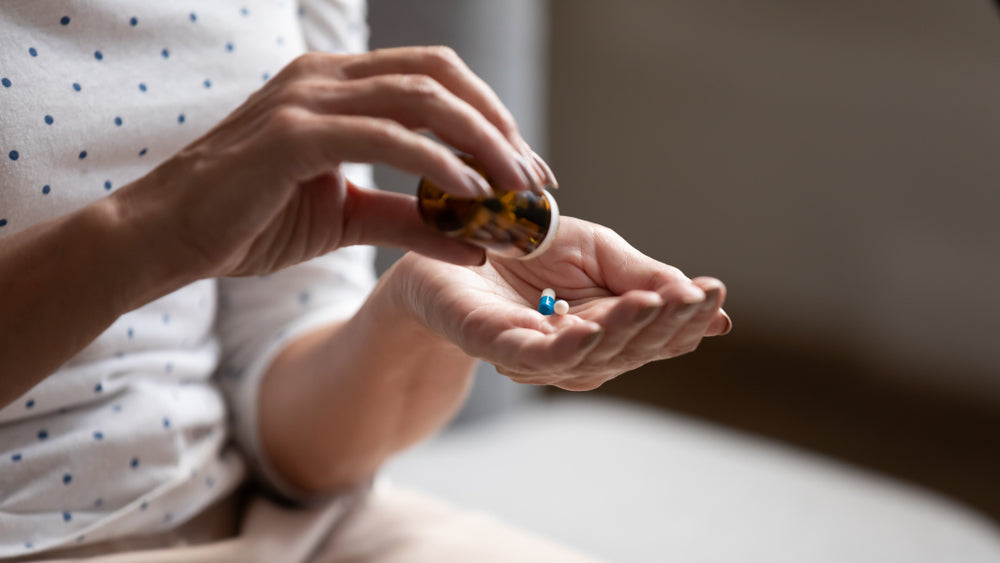Supplements and diabetes: are they effective or risk mitigators

Proper diabetes management is a journey that requires responsibility and commitment to achieve comprehensive well-being and is key to preventing complications.
There are various ways to prevent or treat this disease, and in this blog, we focus on an effective method, which is dietary supplements. These have become a very popular addition to diets aimed at controlling blood glucose levels and improving quality of life. You are about to learn more about the role that supplements play in relation to diabetes.
What should we know about diabetes?
Diabetes is a chronic disease that affects people's metabolism, that is, the way we process food and convert it into energy.
For glucose to be absorbed into the blood, insulin is required, which is the hormone that people with diabetes either do not produce enough of or do not respond to. Here we will tell you a little more about how this affects each patient depending on the type of diabetes they live with.
Type 1 Diabetes: This type of diabetes has no predictable cause. People living with it stop producing enough insulin, usually at an early age, often due to an autoimmune reaction in which the body destroys the beta cells of the pancreas. In many cases, there is a genetic predisposition.
Type 2 Diabetes: This case is different, as the patient's body resists and does not respond properly to the insulin produced by the pancreas. As a result, the pancreas produces more insulin, which ends up being harmful because it increases sugar levels without being absorbed into the blood. This is the most common type of diabetes.
Gestational Diabetes: Occurs when the body does not produce enough insulin during pregnancy, even when production was normal previously. This type usually resolves after childbirth, but women who have it are at greater risk of developing type 2 diabetes in the future.
Understanding this, we can now delve into understanding the role of supplements in this complex journey.
Diabetes and Supplements
The popularity of dietary supplements for diabetes control has grown in recent years, along with the interest in a much more comprehensive approach to treatment.
Several studies have been conducted indicating that certain natural substances and components can complement diabetes treatment, although there is still no complete certainty. Here we will tell you about some components that have been studied and the beneficial effects they have on the body for people living with diabetes.
Goat's Rue: Its main active component, galegine, a natural alkaloid present in the plant, has been shown to be effective in reducing blood sugar levels and counteracting insulin resistance. This important finding led to the development of metformin, a widely used drug today in contemporary diabetes management.
Additionally, goat's rue has been observed to bring benefits to people with insulin resistance who have difficulty losing weight. Its positive influence in these cases suggests a potential positive effect on weight loss, offering a valuable option for those facing this challenge.
You can get it here.
Resveratrol: It is a natural polyphenol present in fruits like grapes, and has demonstrated antioxidant, anti-inflammatory properties, and the ability to slow cellular aging. In clinical studies, its use has been linked to antioxidant and anti-inflammatory effects, highlighting its indication in the treatment of Diabetic Neuropathy. Furthermore, research suggests improvements in insulin resistance and cellular stress, pointing to promising potential in diabetes care.
You can find it here.
Turmeric: Valued in Ayurvedic medicine, turmeric stands out for its composition rich in proteins, polysaccharides, fatty acids, sesquiterpenes, and B complex vitamins. Its recognition is due to its health benefits. Although further investigation is required, turmeric emerges as a valuable resource with therapeutic potential for various conditions, including diabetes.
You can find it here.
Vitamin C: Recent studies have revealed that vitamin C helps reduce high blood sugar levels in patients with type 2 diabetes. Research highlights that the use of vitamin C supplements, in higher doses, significantly reduces sugar levels and blood pressure. Furthermore, its consumption has been linked to halting the damage caused by type 1 diabetes to blood vessels, offering a potentially preventive approach to cardiovascular complications linked to diabetes.
You can find it here.
But the real question is, what is the role of supplements then?
Supplements are intended to aid or contribute to diabetes treatments, and often aim to accompany a healthy diet and exercise that can help prevent this disease. They are a good option for controlling some aspects of diabetes as mentioned above, such as regulating glucose, increasing insulin sensitivity, and addressing possible deficiencies of vitamin C.
It is very important to remember that although studies show that supplements may represent an advantage for people with diabetes in general, it is highly recommended to consult with a healthcare professional who can evaluate the particular situation of each patient, as all bodies function differently and there may be contraindications.
Supplements may not be a magical solution for diabetes, but they can indeed be an ally on this complex journey. If you are considering using dietary supplementation, we recommend Nanopharmacy supplements that contain nanotechnology to ensure significantly greater absorption.
Don't forget that you can write us your comments and questions on our social networks, such as Facebook and Instagram.

